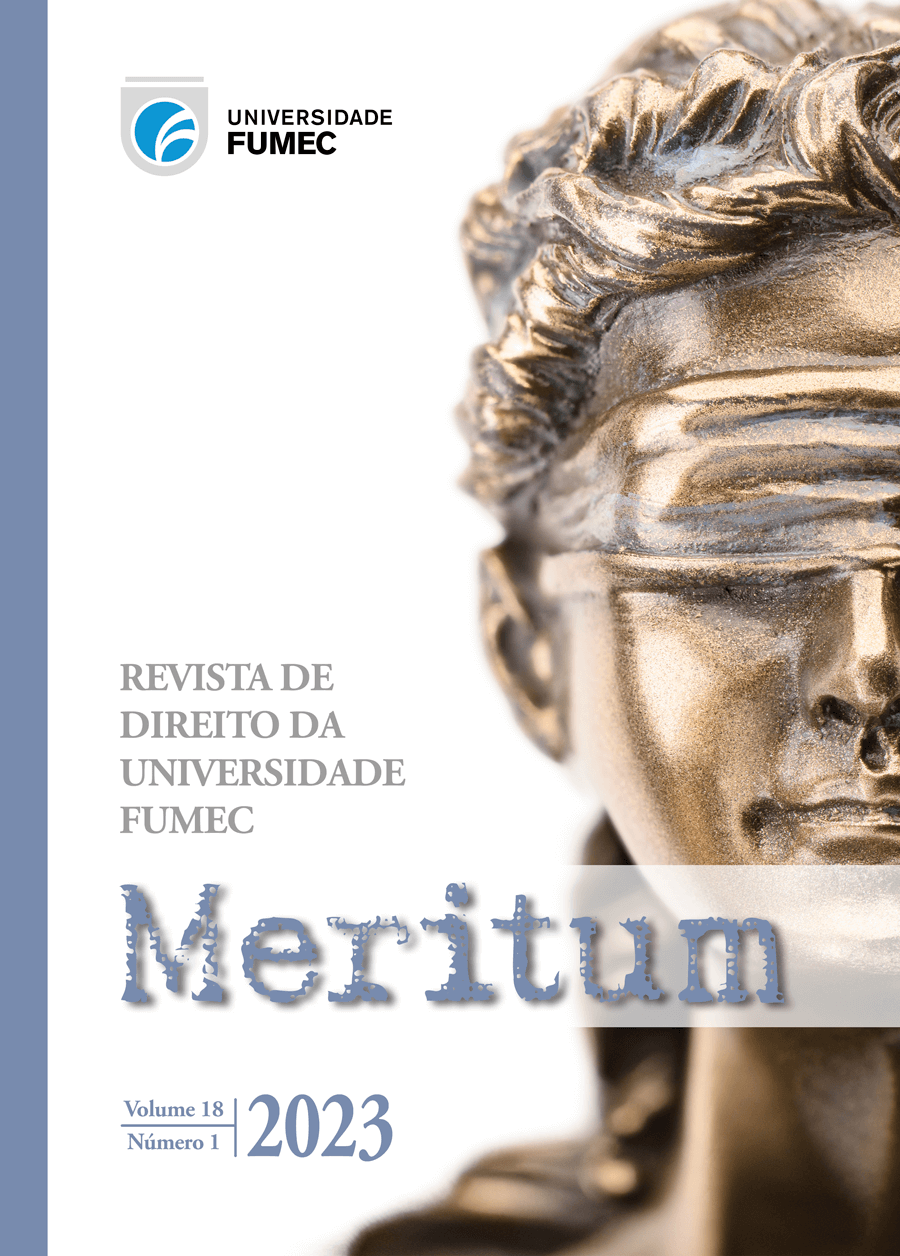THE NATIONAL POLICY OF RESTORATIVE JUSTICE: IN THE RATIONALITY OF THE DEMOCRATIC STATE OF LAW
A MAGIA DA JUSTIÇA RESTAURATIVA NA RACIONALIDADE DO ESTADO DEMOCRÁTICO DE DIREITO
DOI:
https://doi.org/10.46560/meritum.v18i1.9632Abstract
This article aims to analyze the practices used by Restorative Justice, especially peacebuilding circles, and, from the perspective of legal anthropology, to verify how such rites can help in the development of a culture of peace and in the construction of a Power Democratic Judiciary, in order to increase the levels of citizenship and develop a free, fair and solidary society, achieving the goals of the Federative Republic of Brazil. Within this perspective, also following the reading of Émile Durkheim, the present study presents, as an object of investigation, through the hypothetical-deductive method, the conditions to face litigation through transdisciplinary methods, which far surpass monism. adopted by dogmatic legal education, since the dialogue between law and the zetetic sciences is essential to better understand the social phenomena we face in order to build healthy societies.
Downloads
Published
Issue
Section
License
Autores que publicam nesta revista concordam com os seguintes termos:
- Autores mantém os direitos autorais e concedem à revista o direito de primeira publicação, com o trabalho simultaneamente licenciado sob a Licença Creative Commons Attribution que permite o compartilhamento do trabalho com reconhecimento da autoria e publicação inicial nesta revista;
- Autores têm autorização para assumir contratos adicionais separadamente, para distribuição não-exclusiva da versão do trabalho publicada nesta revista (ex.: publicar em repositório institucional ou como capítulo de livro), com reconhecimento de autoria e publicação inicial nesta revista;
- Autores têm permissão e são estimulados a publicar e distribuir seu trabalho online (ex.: em repositórios institucionais ou na sua página pessoal) a qualquer ponto antes ou durante o processo editorial, já que isso pode gerar alterações produtivas, bem como aumentar o impacto e a citação do trabalho publicado (Veja O Efeito do Acesso Livre).






